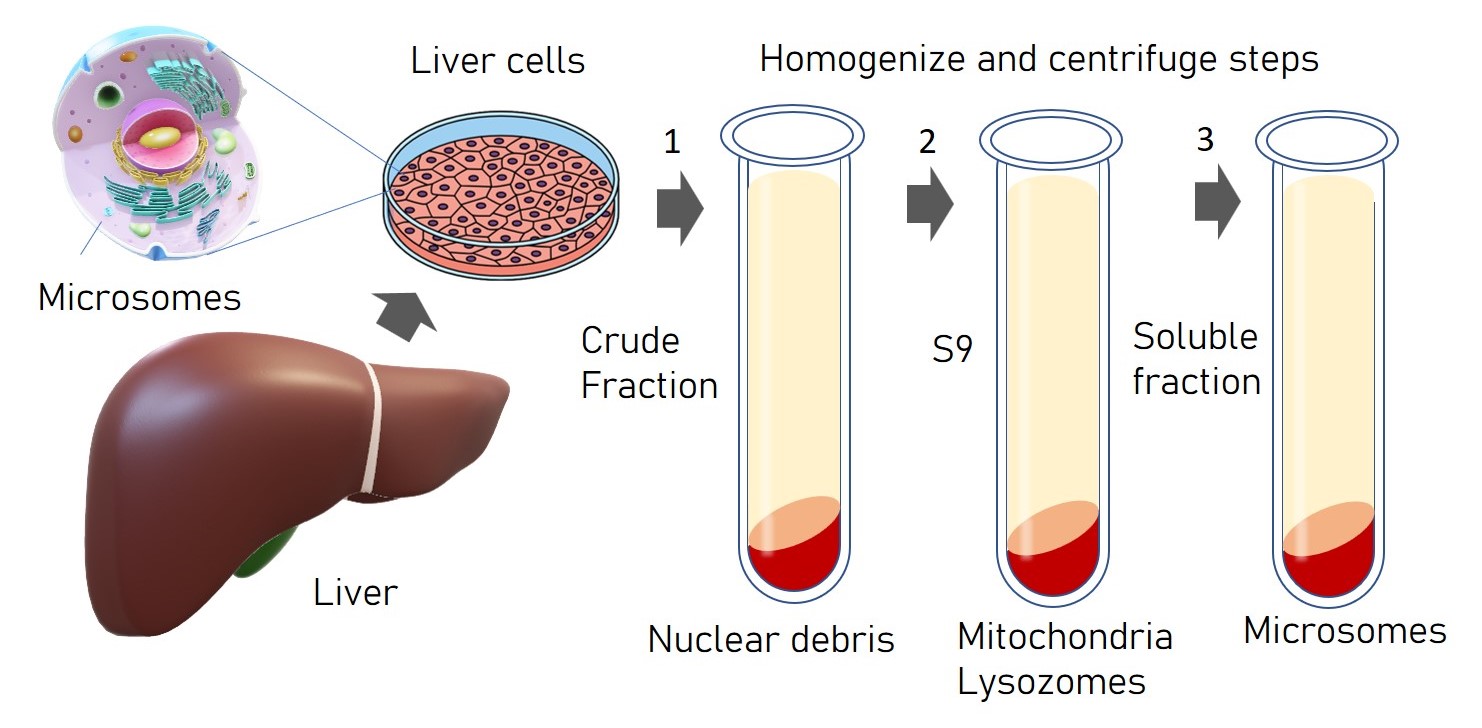Isolated liver microsomes for drug metabolism and pharmacokinetic assays
The cytochrome P450 enzyme (CYP) family play a key role in hepatic elimination that occurs in the endoplasmic reticulum. Microsomes are vesicular fragments formed from the endoplasmic reticulum when cells are broken up. Liver microsomes contain the enzymes crucial for phase I metabolism, enabling the oxidation, reduction, and hydrolysis of drugs.

Liver microsomes are the most convenient way to investigate CYP-mediated metabolism. Microsomes are a useful in vitro testing system as they contain all CYP enzymes and ensure the CYP kinetic measurements are not confused with other metabolic processes or cellular uptake. By using microsomes in vitro, researchers can study how a drug is metabolized by the liver, predict potential metabolites, and understand the drug’s pharmacokinetics. Microsomes can be utilized for:
- Drug-drug interaction assays
- Toxicology assays
- Enzyme kinetics studies
- Species comparison of metabolic pathways
- Metabolic stability screening
- High-throughput screening
- Predictive modeling
CYP-qualified liver microsomes are available from human donors (pooled from 50 gender-balanced donors), CD1 mice and Wistar rats.